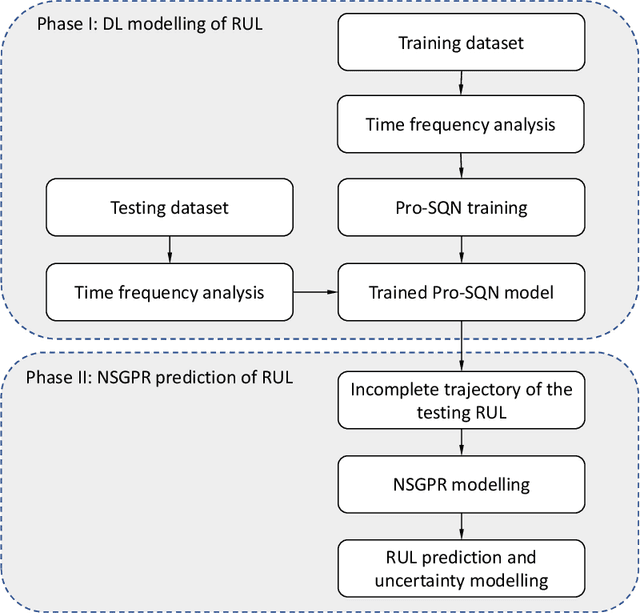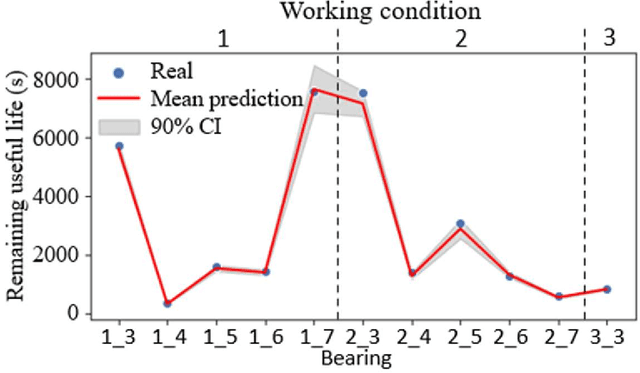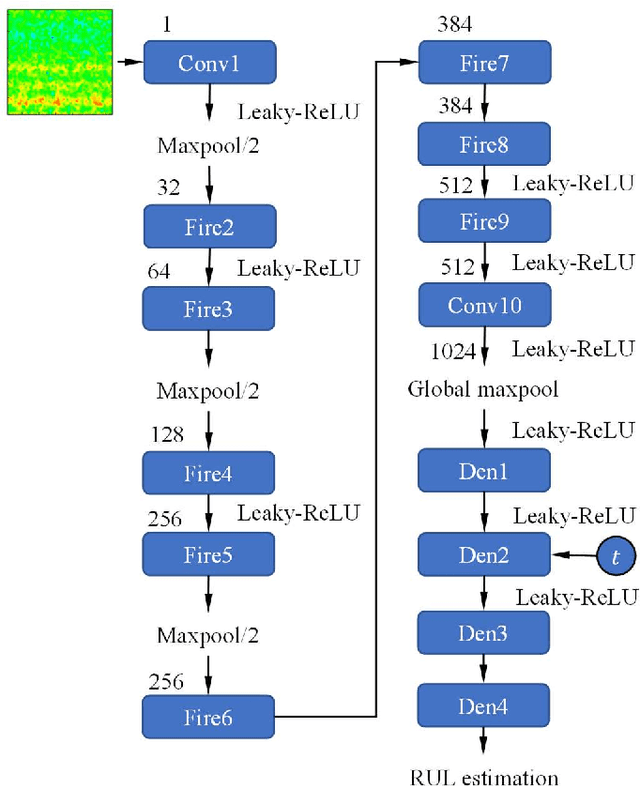Remaining useful life prediction with uncertainty quantification: development of a highly accurate model for rotating machinery
Paper and Code
Sep 23, 2021



Rotating machinery is essential to modern life, from power generation to transportation and a host of other industrial applications. Since such equipment generally operates under challenging working conditions, which can lead to untimely failures, accurate remaining useful life (RUL) prediction is essential for maintenance planning and to prevent catastrophic failures. In this work, we address current challenges in data-driven RUL prediction for rotating machinery. The challenges revolve around the accuracy and uncertainty quantification of the prediction, and the non-stationarity of the system degradation and RUL estimation given sensor data. We devise a novel architecture and RUL prediction model with uncertainty quantification, termed VisPro, which integrates time-frequency analysis, deep learning image recognition, and nonstationary Gaussian process regression. We analyze and benchmark the results obtained with our model against those of other advanced data-driven RUL prediction models for rotating machinery using the PHM12 bearing vibration dataset. The computational experiments show that (1) the VisPro predictions are highly accurate and provide significant improvements over existing prediction models (three times more accurate than the second-best model), and (2) the RUL uncertainty bounds are valid and informative. We identify and discuss the architectural and modeling choices made that explain this excellent predictive performance of VisPro.
 Add to Chrome
Add to Chrome Add to Firefox
Add to Firefox Add to Edge
Add to Edge